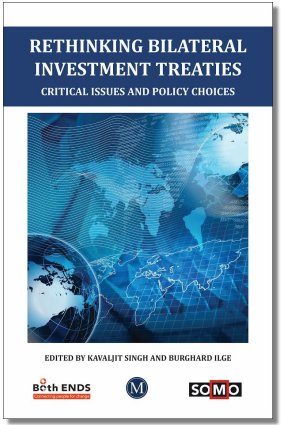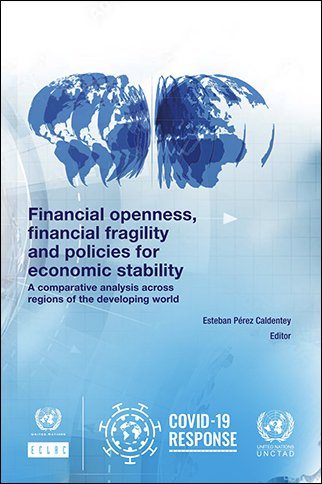Publisher: Third World Network Year: 2023 No. of pages: 42 Download now About the Book…
Rethinking Bilateral Investment Treaties: Critical Issues and Policy Choices Edited by: Kavaljit Singh and Burghard Ilge

About the Book
Jointly Published by Both ENDS, Madhyam and SOMO
The cross-border investment flows are currently governed by bilateral and regional investment treaties. Today, more than 3,000 BITs are in existence globally. However, there are signs of growing unease with the BIT regime across countries and regions. The growing number of investor claims against sovereign states challenging a wide array of public policy decisions and regulatory measures has evoked deep concerns about the potential costs associated with such treaties.
A number of countries have been revisiting their BITs program since the early 2000s. In recent years, a backlash against BITs has gained momentum in the global South, particularly in the Latin America. Bolivia, Ecuador, Venezuela, and Nicaragua have all rolled back their BIT commitments. South Africa has replaced its BITs regime with a new domestic legislation that aims to protect investor rights while safeguarding policy space to regulate in the public interest. In Asia, several countries are taking steps to protect themselves from costly investor-state arbitration. All these important developments call for collective thinking and constructive engagement by all stakeholders – governments, inter-governmental organizations, the private sector, civil society, think-tanks and academia.
This free-to-download ebook takes stock of current developments and explores alternative approaches to reform investment treaties. The book covers a wide range of topics – from current trends in investor-state arbitration to the wider ramifications of investment treaties on sovereign debt restructuring, the extractive industry, intellectual property rights and human rights. It provides an up-to-date account of the model BIT reviews undertaken by South Africa, India and Indonesia. Some of the authors have suggested a broad gamut of useful policy solutions. The book presents a debate that is very relevant to the ongoing initiatives to reform the BITs regime. It raises some critical policy issues which are missing in the current debates. The book attempts to launch a dialogue among government officials, legal experts drawn from academia, international organizations and civil society groups to address the systemic shortcomings of the current BIT regime.
The book contains 19 distinct analyses by leading experts in the field, covering both national and international perspectives. Some contributions are written by current or former government officials, others are written by legal experts, researchers and economists based in academia, think tanks and NGOs. It is very rare to find contributions by authors from such diverse backgrounds in a single publication.
This book will be of prime interest to anyone concerned with issues surrounding bilateral investment treaties and international law. In particular, the book will be useful to policymakers, parliamentarians, private sector companies, NGOs, academics, lawyers, scholars and journalists.
Contributors: Sarah Anderson, Brook K. Baker, Nathalie Bernasconi-Osterwalder, Martin Dietrich Brauch, Xavier Carim, Lorenzo Cotula, Patrick Dumberry, Pia Eberhardt, Michael Ewing-Chow, Kevin P. Gallagher, Saurabh Garg, Katrina Geddes, Burghard Ilge, Abdulkadir Jailani, Junianto James Losari, Cecilia Olivet, Manuel Pérez-Rocha, Prabhash Ranjan, Sudhanshu Roy, Kavaljit Singh, Ishita G. Tripathy, Gus Van Harten, Roos Van Os, Zoe Phillips Williams and James X. Zhan.



